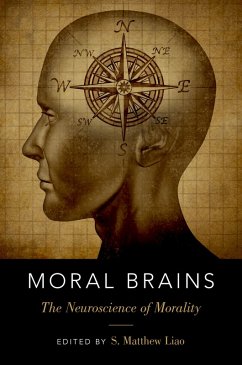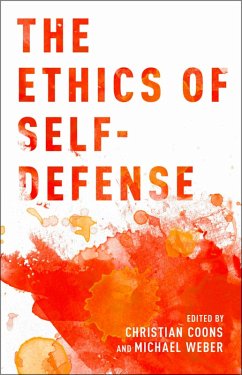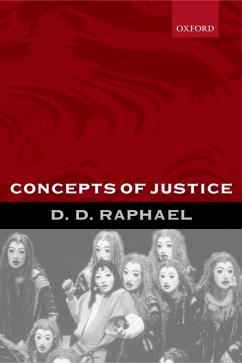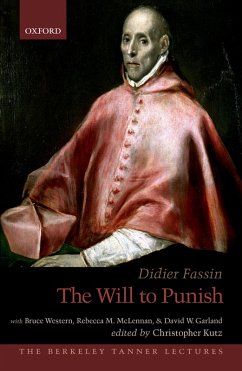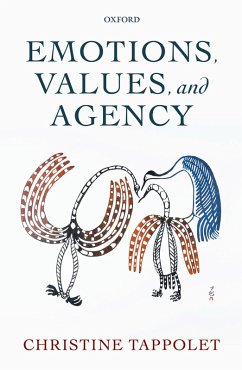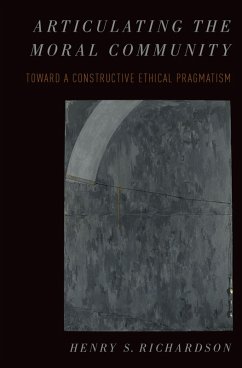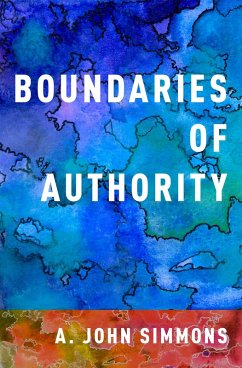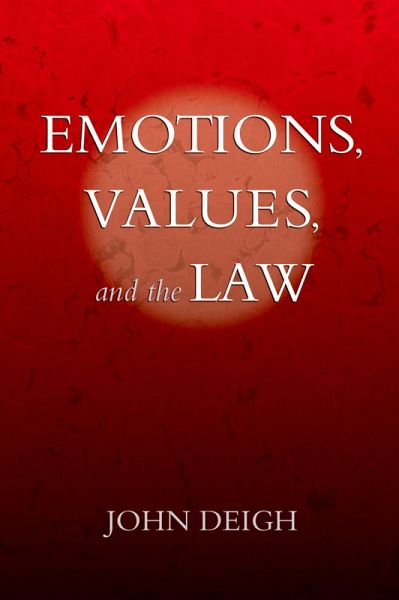
Emotions, Values, and the Law (eBook, PDF)
Versandkostenfrei!
Sofort per Download lieferbar
12,95 €
inkl. MwSt.
Weitere Ausgaben:

PAYBACK Punkte
6 °P sammeln!
Emotions, Values, and the Law brings together ten of John Deigh's essays written over the past fifteen years. In the first five essays, Deigh ask questions about the nature of emotions and the relation of evaluative judgment to the intentionality of emotions, and critically examines the cognitivist theories of emotion that have dominated philosophy and psychology over the past thirty years. A central criticism of these theories is that they do not satisfactorily account for the emotions of babies or animals other than human beings. Drawing on this criticism, Deigh develops an alternative theor...
Emotions, Values, and the Law brings together ten of John Deigh's essays written over the past fifteen years. In the first five essays, Deigh ask questions about the nature of emotions and the relation of evaluative judgment to the intentionality of emotions, and critically examines the cognitivist theories of emotion that have dominated philosophy and psychology over the past thirty years. A central criticism of these theories is that they do not satisfactorily account for the emotions of babies or animals other than human beings. Drawing on this criticism, Deigh develops an alternative theory of the intentionality of emotions on which the education of emotions explains how human emotions, which innately contain no evaluative thought, come to have evaluative judgments as their principal cognitive component. The second group of five essays challenge the idea of the voluntary as essential to understanding moral responsibility, moral commitment, political obligation, and other moral and political phenomena that have traditionally been thought to depend on people's will. Each of these studies focuses on a different aspect of our common moral and political life and shows, contrary to conventional opinion, that it does not depend on voluntary action or the exercise of a will constituted solely by rational thought. Together, the essays in this collection represent an effort to shift our understanding of the phenomena traditionally studied in moral and political philosophy from that of their being products of reason and will, operating independently of feeling and sentiment to that of their being manifestations of the work of emotion.
Dieser Download kann aus rechtlichen Gründen nur mit Rechnungsadresse in A, B, BG, CY, CZ, D, DK, EW, E, FIN, F, GR, HR, H, IRL, I, LT, L, LR, M, NL, PL, P, R, S, SLO, SK ausgeliefert werden.




